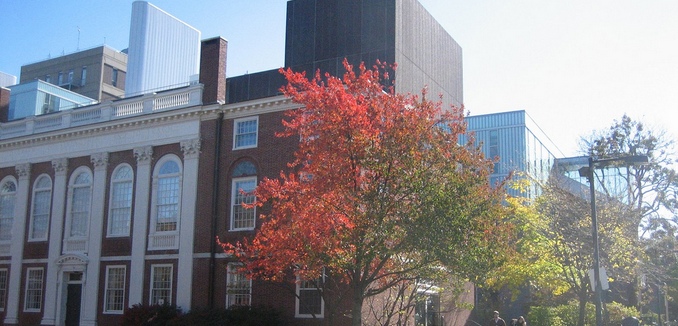In addition to demonstrating “moral myopia and academic perversity,” boycotts of Israel by academic associations are often in violation of the groups’ very own charters, Eugene Kontorovich and Steven Davidoff Solomon argued in an op-ed (Google link) published Tuesday in The Wall Street Journal.
Kontorovich and Solomon, respectively professors of law at Northwestern University and the University of California, Berkeley, noted that several academic associations, including the American Anthropological Association and the National Women’s Studies Association, have recently voted to boycott Israel. Similar measures are set to be considered by the American Historical Association (AHA) and the Modern Language Association at their annual meetings.
However, after examining the AHA’s charter, Kontorovich and Solomon pointed out that it did not contain any language that would justify a boycott of Israel.
Consider the American Historical Association. Its constitution—a corporate charter—states that its purpose “shall be the promotion of historical studies” and the “broadening of historical knowledge among the general public.” There’s nothing in this charter that would authorize a boycott. And an anti-Israel boycott will do nothing to promote “historical studies” or broaden “historical knowledge.”
The authors added that the charters of academic associations serve “to protect the overwhelming mass of members who cannot get involved in the minutiae of the organization’s affairs, to ensure that the organization cannot be hijacked for a fundamentally foreign purpose, and to protect minority members.”
When a professional association violates these safeguards and oversteps its bounds, as it would in the case of advocating for an anti-Israel boycott, it would have to reverse itself. Last year, after the Royal Institute of British Architects approved such a boycott, lawyers advised the group that the action was not authorized by its charter. The institute later withdrew the boycott resolution.
Kontorovich and Solomon added that academics or professionals who wished to step outside the boundaries of their associations’ charters are free to create new groups, but must not “commandeer organizations that already exist.”
Academic associations that boycott Israel can also run afoul of other laws. When the American Studies Association adopted their boycott resolution last year, the group found itself in violation of California’s anti-discrimination laws. According to Yair Rosenberg of Tablet, the move also prompted a massive backlash from American universities.
Harvard and Yale, along with a host of other universities, public officials, and journalistic outlets, has condemned and rejected the American Studies Association’s academic boycott of Israel. “Academic boycotts subvert the academic freedoms and values necessary to the free flow of ideas, which is the lifeblood of the worldwide community of scholars,” Harvard President Drew Gilpin Faust said in a statement. “The recent resolution of the ASA proposing to boycott Israeli universities represents a direct threat to these ideals, ideals which universities and scholarly associations should be dedicated to defend.” Yale President Peter Salovey echoed these sentiments: “Any attempt to close off discussion or dialogue among scholars is antithetical to the fundamental values of scholarship and academic freedom. I stand with the Executive Committee of the Association of American Universities in my strong opposition to a boycott of Israeli academic institutions.”
Joining Harvard and Yale in condemning the boycott is a growing chorus of universities, including Princeton, Brown, Cornell, University of Chicago, Northwestern University and New York University. In total, 45 schools have thus far rejected the ASA boycott in the days following its passage. Additionally, four universities–Brandeis, Penn State Harrisburg, Kenyon College, and Indiana University–have cancelled their institutional membership in the organization, while others–Northwestern, Brown, Tufts, University of Alabama, University of Southern California, Trinity College, Temple, Willamette and Hamilton–say they are not members, despite being listed as such by the ASA.
[Photo: Isaac Mao / Flickr ]




